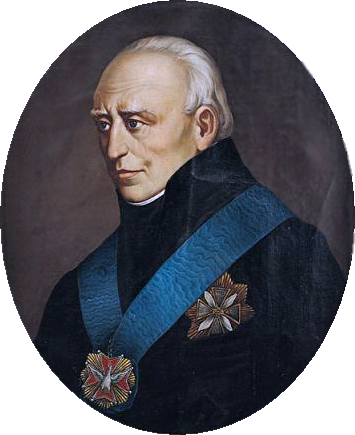Born before 6 November 1755, Stanislaw Staszic became famous as a pioneer of cooperativism and organic work. He was a scholar and activist of great merit for Poland and a man of many interests. He supported the economy and science, and encouraged the talents of Abraham Stern, the Jewish inventor of the calculating machine [https://dignitynews.eu/pl/dodawaly-odejmowaly-mnozyly-dzielily-i-pierwiastkowaly-xix-wieczne-maszyny-liczace-abrahama-sterna].
Staszic descended from a burgher family originating from the town of Piła. He attended the Poznań seminary and was ordained a priest in 1779. He studied in Germany and France, learning about natural sciences and the social philosophy of the time. Staszic was interested in deposits of natural resources, becoming the “father of Polish geology”. He also devoted much time to history, philosophy and economics. In his writings including „Remarks upon the life of Jan Zamoyski” and „Warnings for Poland”, he included a programme for the reform of the state, e.g. in education. He combined patriotism with the need to make the bourgeoisie equal to the nobility.
As a thrifty and enterprising activist, Staszic managed to accumulate a considerable fortune, which he allocated to social purposes and to the purchase of land near Hrubieszów, where, in 1816, he enfranchised the local peasants and founded the Hrubieszów Agricultural Society – a precursor cooperative uniting peasants, who used the profits from mills, brickyards and sawmills to maintain schools, a hospital, support orphans and widows, and fund scholarships.
For many years Staszic was president of the Warsaw Society of the Friends of Science, for which he founded the new edifice (now Staszic Palace). As Deputy Minister of the Government Commission for Religious Denominations and Public Enlightenment, he established Sunday schools for craftsmen, and founded the Mining School in Kielce. Staszic developed metallurgy in the Old-Polish Industrial Region, resumed coal mining in the Dąbrowa Basin, and inspired the establishment of industry in Łódź. In addition, he founded the Warsaw monuments to Nicolaus Copernicus and Józef Poniatowski. He lived by the principle: “To be useful to the nation”.
In his will, he donated large sums of money to Warsaw hospitals, the Institute for the Deaf and Dumb, and the construction of an asylum.





